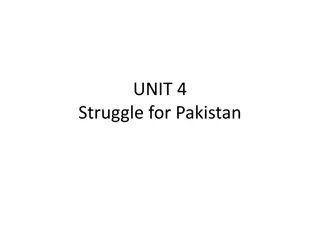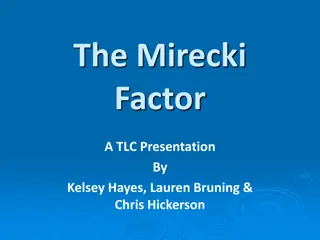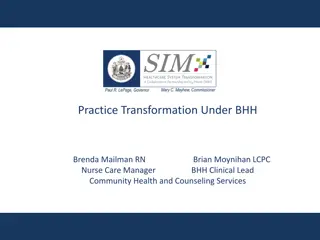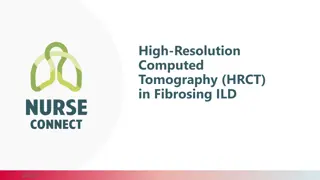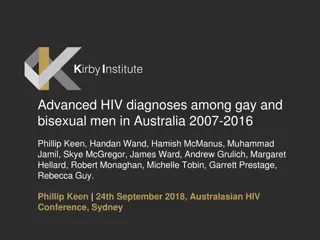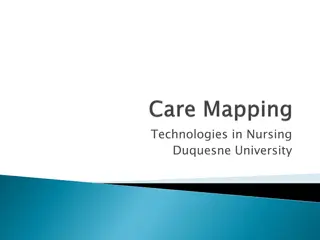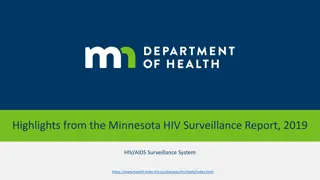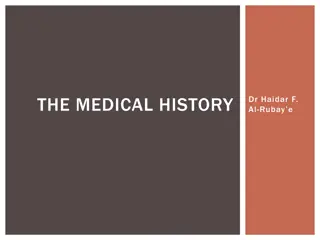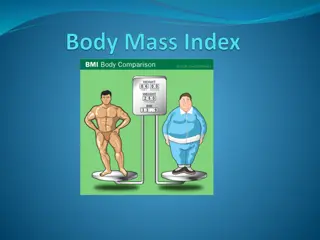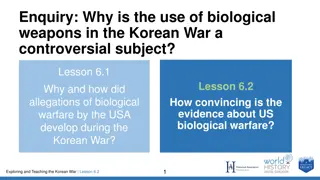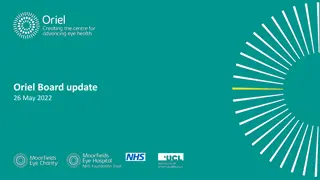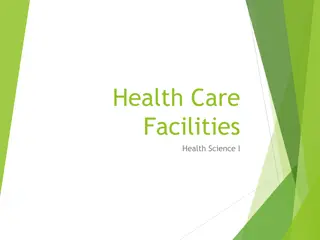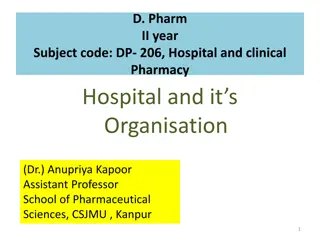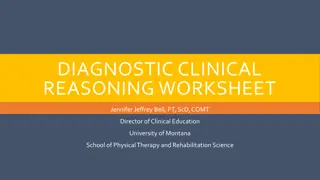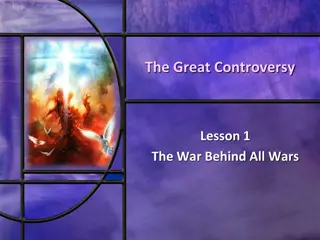Controversy Surrounding Child Abductions and Medical Diagnoses in Hospitals
U.S. News & World Report released its rankings for the Best Children's Hospitals 2023-24, with notable mentions like Cincinnati Children's Hospital Medical Center. However, the absence of Phoenix Children's Hospital raises questions. The case of Maya Kowalski and her family, featured in the Netflix documentary "Take Care of Maya," sheds light on issues like child abuse accusations, Munchausen Syndrome By Proxy, and controversies involving Child Protective Services and hospitals.
Uploaded on Sep 13, 2024 | 0 Views
Download Presentation

Please find below an Image/Link to download the presentation.
The content on the website is provided AS IS for your information and personal use only. It may not be sold, licensed, or shared on other websites without obtaining consent from the author. Download presentation by click this link. If you encounter any issues during the download, it is possible that the publisher has removed the file from their server.
E N D
Presentation Transcript
HOW MANY CHILDREN ABDUCTED FROM CHILDREN S HOSPITALS BY CPS? U.S. News & World Report released its Best Children's Hospitals rankings for 2023-24 on June 21, with Cincinnati Children's Hospital Medical Center earning the top spot for the first time. Here are the top 10 hospitals named to U.S. News' 2023-24 Best Children's Hospitals Honor Roll: 1. Cincinnati Children's Hospital Medical Center 2. Boston Children's Hospital 3. Texas Children's Hospital (Houston) 4. Children's Hospital of Philadelphia 5. Children's National Hospital (Washington, D.C.) 6. Nationwide Children's Hospital (Columbus, Ohio) 7. Children's Hospital Los Angeles 8. UPMC Children's Hospital of Pittsburgh 9. Rady Children's Hospital (San Diego) 10. Johns Hopkins Children's Center (Baltimore) It makes one wonder why Phoenix Children s Hospital is not one of the top ten children s hospitals in the nation ????????????
Girl from Netflix's 'Take Care of Maya' was 'imprisoned and battered' before mother's suicide, lawyer says The 2017 death of Beata Kowalski and her family's health and legal struggled were profiled in the Netflix's documentary "Take Care of Maya." Maya Kowalski; Jack Kowalski; Beata Kowalski; and Kyle Kowalski.
Netflix: Take Care of Maya (contd) When Maya was taken to the hospital, the lawsuit said, doctors suspected the parents of child abuse and that the mother, Beata, was suffering from Munchausen Syndrome By Proxy. It's a condition when someone, often an adult, falsifies another's symptoms, often in a child, sometimes to seek attention. Maya Kowalski, Beata Kowalski, Jack Kowalski, and Dr. Anthony Kirkpatrick. This is eerily similar to the Leanna Smith Case in Arizona with Phoenix Children s Hospital where an out-of-state psychologist specifically hired to make a diagnosis of Munchausen Syndrome by Proxy. Dr. Eli Newberger (a world renowned Physician that helped President Richard Nixon develop the original standards for Child Protective Services for USA Countered the state and hospitals accusations.
Netflix: Take Care of Maya (contd) In this Netflix documentary they look at children s hospital calling Child Protection Services after the mother asked for her daughter to be treated with Ketamine as the doctor had ordered for complex regional pain syndrome (CRPS). The hospital called CPS on the mother Beata Kowalski stating she had Munchausen By Proxy/ Factitious Disease. (MUNCHAUSEN'S SYNDROME BY PROXY) a mental condition in which a person repeatedly seeks medical attention for another person for symptoms that are falsified, exaggerated, or deliberately induced. This lead to the mother committing suicide after receiving a diagnosis of Munchausen Syndrome By Proxy by CPS and her daughter being locked up in John Hopkins All Children s Hospital for 3 months at age 10 years old and the hospital and CPS forbidding mother to have contact with her daughter. All the while billing their daughter s insurance for complex regional pain syndrome (CRPS).
Netflix: Take Care of Maya (contd) A hospital "falsely imprisoned and battered" a girl and wrongly accused her parents of child abuse, leading the mother's suicide, jurors were told in opening statements Thursday in a case that gained notoriety from a Netflix documentary. Loved ones of the late Beata Kowalski filed a $200 million lawsuit against Johns Hopkins All Children s Hospital in St. Petersburg, Florida, claiming the medical center's negligence ended in the mother's untimely death. Jack and Beata Kowalski's daughter, Maya, now 17, suffered from severe pains that the family was told were due to a rare neurological condition, complex regional pain syndrome (CRPS). Those with the condition can experience intense pain with the most moderate contact.
Netflix: Take Care of Maya (contd) Maya was separated from her family for months due to doctors wrongly accusing the parents of abuse and refusing to believe the girl suffered from CRPS, the lawsuit said. I was medically kidnapped, Maya told People Magazine in an exclusive interview in June. The separation ultimately culminated in Beata Kowalski s suicide in early 2017, according to plaintiff's attorney Greg Anderson. The family's saga was profiled in the Netflix documentary "Take Care of Maya." Maya was released back to the care of her family a week after Beata Kowalski s suicide, the lawsuit said.
Netflix: Take Care of Maya (contd) "Maya Kowalski was falsely imprisoned and battered. She was denied communication with her family," Anderson told jurors. "She was denied communication with the outside. She was told that her mother was crazy. She was told by social workers, one in particular, that she would be her mother." The family says Johns Hopkins All Children s Hospital doctors should have known that Maya suffered from CRPS, but they still touched and hugged the girl, causing pain in an effort to disprove the diagnosis.
"Maya was repeatedly battered by nurses and social workers trying to prove that she did not have CRPS," Anderson added. Maya Kowalski in "Take Care of Maya" on Netflix. The breaking of the Mother emotionally is critical to the effort of making the Mother seem disturbed, dishonest, dysfunctional, and must be abusing their child. Again, this is similar to the Arizona Leanna Smith Case where there was no physical or emotional abuse when in Mother s care; only during custody of the State, in school, and extreme abuse in the Foster home. The court ignored any other abuse in State custody while other physicians were ignored as they showed issues by others.
Maya Kowalski dabbed away tears during portions of Thursday's opening statements. "They [defendants] continued to accuse the Kowalski s, Jack and Beata, of being child abusers even after the evidence ... was overwhelming that she [Maya] had CRPS," Anderson said. The hospital's attorney, Howard Hunter, said doctors did their best to treat a difficult case in which a child appeared to be in extreme pain and her leg muscles atrophied after a months in a wheelchair. Irrationally and obviously , Judges automatically weigh evidence in favor of the State actors while often ignoring more qualified and greater experienced witnesses. The scales of justice begin in favor of the state, hospitals, physicians, and state provided attorneys that do not have the skills and ability to wage a defense for their client. Those with the skill and ability know they will be given less and less cases if they win.
"She was demanding pain medication, pain medication in large quantities," Hunter told the court. "Mrs. Kowalski arrived a while later and you're going to hear when she arrived she forbade the doctors and the nurses to touch Maya. The doctors and nurses wanted to assess her, to examine her." When the Family and State relationship breaks down trust is broken and communication lessens from all persons involved. Parents/Family members become defensive and State actors become defensive and more often than not become angry, vindictive, I will show you! and Circle the wagons against the family. The extreme turnover and in ability to hire, train, and retain employees in this field is better than 60%
Doctors in the ER wanted to check off any number of possible reasons for Maya's extreme mid- section pain but the mother allegedly told them not to touch her daughter before giving her high doses of painkillers, the defense said. "Mrs. Kowalski insisted that before there be any work up of the child she wanted ketamine, and not just any amount of ketamine," Hunter said. "It is not approved for use in children, nor is it approved for use in high doses for treatment in CRPS." "That is a big dose," Hunter said. "That dose you're going to hear is several times, many times the maximum dose [for children]." Clearly, communication, trust, and a healthy relationship is gone! Doctors may see themselves as Gods, but they clearly are not and have a responsibility to maintain a working relationship with their patients and families. I realize there is nothing in the Socratic Oath that speaks to First do no Harm. That does not mean it should not be considered
Teen at centerof Take Care of Maya documentary shares heartfelt letter at trial against abusive hospital. A teenager whose account of how her mother took her own life after she was accused of Munchausen-by-proxy, which was at the center of a recent Netflix documentary, shared a heartbreaking letter to her family as the trial continued. Maya Kowalski took to the stand before the jury entered the courtroom on Tuesday, as her lawyer argued why the letter should be admitted into evidence in the $200m Florida lawsuit. Her family allege that doctors at Johns Hopkins All Children s Hospital separated the then-nine- year-old from her family after accusing her of faking symptoms of complex regional pain syndrome (CRPS). Their story was featured in Netflix s Take Care of Maya documentary, which alleged Maya s mother Beata took her own life after she was denied access to her daughter for 87 days.
Maya, now 17, said on Tuesday that she had written a letter to her family to express how much I missed them but that she did not want to be too explicit about her condition for fear that doctors would not have sent the letter on. At the time, I desperately missed my family and wasn t really able to have any contact with them, she said, according to Fox13. In this document, I m expressing (that) I miss them. I was extremely depressed. Maya Kowalski is now 17 (Netflix)
The judge later allowed the document, which contains a small drawing of Maya and her family encased in a heart, to be admitted into evidence. The youngster was brought to an emergency room at Johns Hopkins All Children s Hospital in October 2016 to seek help for CRPS syndrome, a rare and debilitating disease. Maya had been taking ketamine infusion therapy for a year to treat the symptoms, her family say. When her mother Beata, a nurse, arrived at the hospital and insisted her daughter be given more ketamine, staff became suspicious and contacted a Child Abuse Hotline.
A state judge and Floridas Department of Children and Families later sided with doctors who suspected Beata was suffering from Munchausen-by-proxy syndrome, a psychological disorder where parents fabricate their child s illness. Maya was ordered to be held in the hospital by the judge, and prevented from seeing Beata, and after 87 days the 43-year-old took her own life. Suspiciously, the father is almost never charged and more often than not the father is threatened with never seeing his child again unless he agrees that the mother is the abuser. Deviously, law enforcement rarely makes an arrest and almost never prosecutes Father or Mother? Eight to Ten thousand children in state custody and yet there are almost NO persons in jail or prison for abusing these children (Arizona)
Beata Kowalski was just 43 when she took her own life in January 2017 after being separated from her daughter for months by the courts following false accusations of Munchausen by proxy (Netflix) When a physician or hospital makes a medical mistake the RISK MANAGEMENT department begin is called in immediately. The Risk Management people begin developing a case for Munchausen by Proxy against the Mother. Then they call child protective services and report that they believe the Mother has caused the medical issues. From then on the child protective service people do everything they can to affirm that the mother is the individual hurting the child. From that moment on there is a culture to get that Mom at all cost. The medical malpractice problem disappear.
from her original pediatrician, Dr. John Wassenaar, who was given the letter by her mother as part of her daughter s medical record. "I thought it underscored that she wasn t being abused, people weren t doing things to her that put her in pain" he said. According to Fox13 he added: "It underscored to me how much she loved her parents and how much she wanted to be reunited with them." Dr. Wassenar also testified that CRPS was rare in children, and that he had not experienced it presenting as a generalized pain symptom before.
Last Thursday, Maya wept in court as opening arguments in the case were presented, with her family s lawyer Greg Anderson telling the court that she had been falsely imprisoned, battered (and) denied communication with her family . Howard Hunter, representing Johns Hopkins All Children s, lawyer Howard Hunter insisted the hospital meant no harm to Maya. Children in the system are Reprogrammed the minute they are removed from the home. Isolated Threatened Battered Given alternative possibilities Confused Denied: food, religion, friends, changed schools, and more ..
The issue here is who is responsible for it. We will go over the facts and what the facts don t show in terms of any connection of what was done by All Children s and that tragic result, Mr. Hunter said, according to Fox13. The Kowalski family is suing Johns Hopkins All Children s Hospital and the Department of Children and Families for $55m in compensatory damages and $165m in punitive damages. The trial is estimated to take two months.
Kowalski v. Johns Hopkins All Childrens Hospital: Take Care of Maya Trial ST. PETERSBURG, Fla. (Court TV) A civil trial in Florida is underway as a family fights a hospital whose actions, they say, led to a mother s suicide. Maya Kowalski, whose story has been viewed by millions in the Netflix documentary, Take Care of Maya, took the stand briefly on Tuesday outside the jury s presence to authenticate a letter she wrote to her family while she was separated from them.
Jack Kowalski, on behalf of his children Maya and Kyle and the estate of his late wife Beata, filed the lawsuit against Johns Hopkins All Children s Medical Center, which treated his children beginning in 2015. Kowalski said the hospital s treatment and accusations of child abuse against Beata led her to take her own life in Jan. 2017. Opening statements in the case began on Sept. 21. The prosecution accused the hospital of medical malpractice, battery, Maya s false imprisonment, intentional infliction of emotional distress and alleged fraud. The attorney representing the hospital said in his opening statement that actions taken by John Hopkins were reasonable and in the best interest of the patient.
While the lawsuit was initially filed against multiple people, an eighth amended complaint filed on Jan. 24, 2023, listed only the hospital and Catherine Bedy, a social worker, as defendants. A filing on Monday, after jury selection had already started, removed Bedy as a defendant. Maya Kowalski appears in court Thursday, Sept. 21, 2023. (Court TV)
According to the lawsuit, Maya was initially admitted to JHACH in July 2015 for a severe asthma attack and began experiencing severe pain and significant weakness. In Sept. 2015, Maya was diagnosed with Complex Regional Pain Syndrome, a neuropathic disease generally caused by damage to or malfunction of the central nervous system, according to the suit. To treat the diagnosis, Maya was given Ketamine infusion treatments, which caused her symptoms to steadily improve. In Oct. 2016, Maya began to experience abdominal pain and vomiting. She was taken back to All Children s Medical Center for treatment. Beata was with her daughter and asked for Maya to be given the appropriate dosages of pain medications she needed.
Upon information and belief, certain JHACH personnel, despite their unfamiliarity with treating CRPS and despite Dr. Hanna s corroboration of Beata and Jack s relaying of the recommended CRPS treatments, became offended and defensive by the suggestions given by the mother (a registered IV nurse) and father (a retired Chicago firefighter). Almost immediately, Defendants, and specifically Debra Hansen, a social worker employed by JHACH, reported Beata to the DCF Child Abuse Hotline, claiming that Beata was interfering with Maya s treatment and there was a disagreement about dosages of Ketamine.
According to the lawsuit, despite DCF finding valid prescriptions for the dosages of Ketamine on file and JHACH being told to close the investigation, the hospital then tried to fight Jack and Beata when they tried to remove Maya from the hospital. At that point, the suit alleges, the hospital brought in Dr. Sally Smith, who was introduced as a pediatrician but was, in fact, the hospital s director of child abuse and was improperly granted access to Maya s medical record in order to build a case of child abuse against the family.
Upon information and belief, Dr. Smith directly and/or indirectly issued orders to JHACH physicians and staff, such as isolating Maya, covertly surveilling Maya by video for a period of approximately 48 hours, ordering a regime of physical therapy, issuing directions to wean Maya off pain medications, and placing restrictions on the Kowalskis visitation rights within JHACH. The lawsuit accuses the hospital of working with its staff to imprison Maya without legal justification and barring her family from visiting. The resulting prolonged separation from their suffering daughter manifested in Beata s depression, fatigue, and overwhelming sense of hopelessness. Despite specific and documented warning signs, JHACH and Dr. Smith continued a campaign of degradation and threats towards the Kowalskis, and specifically, Beata.
A hospital spokesperson gave the following statement to Court TV: Our priority at Johns Hopkins All Children s Hospital is always the safety and privacy of our patients and their families, and we are vigorously defending against the false allegations made in the suit. Our first responsibility is always to the child brought to us for care, and we stand behind our staff s compassionate care. Our staff are required by law to notify Florida s Department of Children and Families (DCF) if they suspect abuse or neglect. It is DCF and a judge not Johns Hopkins All Children s Hospital that investigates the situation and makes the ultimate decision about what course of action is in the best interest of the child. We look forward to demonstrating to the Court and jury that all of the appropriate and legally required processes were followed by our staff.
The emotional case has already been the subject of a Netflix documentary, Take Care of Maya, which was viewed more than 10 million times within a month of its release, Scripps News Denver reported. DAILY TRIAL UPDATES Please go to Court TV for updates
RESOURCES: https://www.nbcnews.com/news/us-news/girl-neflixs-taking-care-maya-was- imprisoned-battered-mothers-suicide-rcna116911 https://www.msn.com/en-gb/news/world/teen-at-centre-of-take-care-of-maya- documentary-shares-heartfelt-letter-at-trial-against-abusive-hospital/ar- AA1hmYZR#image=2 https://www.courttv.com/news/kowalski-v-johns-hopkins-take-care-of-maya-trial/ https://www.msn.com/en-us/news/other/take-care-of-maya-trial-family-faces- hospital-who-accused-mom-of-munchausen-leading-to-her-suicide/ar-AA1h4kPO
We meet in Zoom Meeting: The 2nd Wednesday of every month 6:00pm MST visit us at www.svsloud.orgfor the link to join in the conversation. The truth will always expose hidden crimes that the law protects! Silent Voices Speak


